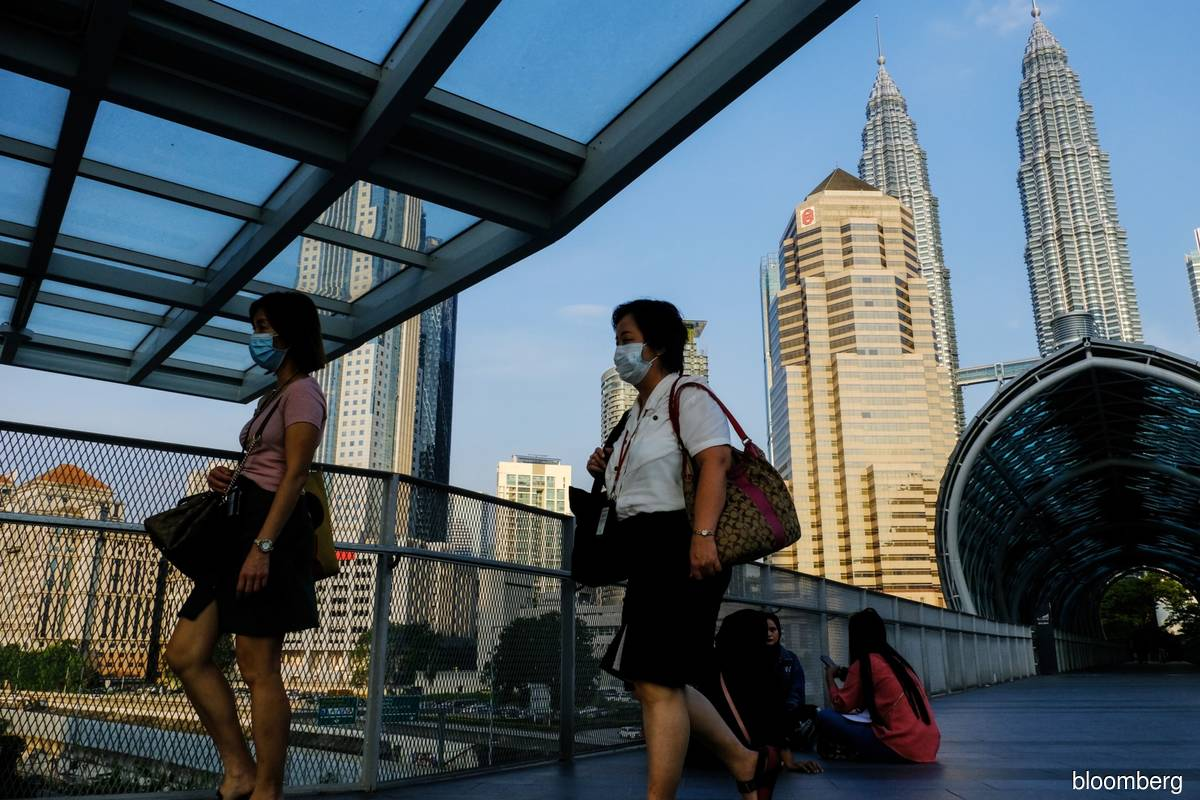Malaysia ranks world's third most competitive GBS location, behind India and China

Malaysia has been ranked as the world's third most competitive Global Business Services (GBS) location, behind India and China, according to an index by global consulting firm Kearney.
根据全球咨询公司Kearney的一项指数,马来西亚被评为全球第三大最具竞争力的全球商业服务 (GBS) 地点,仅次于印度和中国。
The firm's 2021 Global Services Location Index (GSLI) showed that Asian economies continued to take seven spots in the top 10, with India in first place with a score of 7.09, followed by China (6.80) and Malaysia (6.22).
该公司的 2021 年全球服务地点指数 (GSLI) 显示,亚洲经济体继续在前 10 名中占据七个席位,印度以 7.09 分位居第一,其次是中国(6.80)和马来西亚(6.22)。
This index, issued every two years, tracks the contours of the global landscape across 60 countries with four major categories — financial attractiveness, people skills and availability, business environment, and digital resonance.
该指数每两年发布一次,跟踪 60 个国家的全球格局,分为四大类——金融吸引力、人员技能和可用性、商业环境和数字共鸣。
A GBS location allows large multinational corporations (MNCs) or organisations to centralise their business operations and activities, such as finance, human resource, information technology (IT) and procurement in certain countries to provide shared services, said business transformation consultant Joon Teoh.
业务转型顾问 Joon Teoh 表示,GBS 位置允许大型跨国公司 (MNC) 或组织集中其业务运营和活动,例如在某些国家/地区的财务、人力资源、信息技术 (IT) 和采购,以提供共享服务。
She noted that among the MNCs that have established GBS centres in Malaysia are Shell, AstraZeneca, British American Tobacco and Bash.
她指出,在大马设立GBS中心的跨国公司包括Shell、AstraZeneca、British American Tobacco和Bash。
“For IGOs (intergovernmental international organisations), we have the World Health Organisation (WHO), Malaysia's biggest attraction is the diversity of talent, including the languages we speak, that is able to serve different countries,” Teoh told Bernama recently in an interview conducted virtually.
“对于政府间国际组织(政府间国际组织),我们有世界卫生组织(WHO),马来西亚最大的吸引力在于人才的多样性,包括我们说的语言,能够为不同的国家服务,”Teoh最近在接受采访时告诉马新社虚拟进行。
She said GBS centres serve their own people in corporations or organisations around the world.
她说,GBS 中心为世界各地的公司或组织中的员工提供服务。
“For example, if any of their staff, no matter where they are, have to travel overseas, their air tickets, payments and so on will all be managed by the GBS centres set in Malaysia or other countries.
“例如,如果他们的任何员工,无论他们身在何处,都必须出国旅行,他们的机票、付款等都将由设在马来西亚或其他国家的GBS中心管理。
“How do they (GBS centres) do that? This is where technology comes in. Because you have to make it (happen) in a digital platform for people to put in their claims or to buy their air tickets, (and) for suppliers to send the invoices, etc,” Teoh explained.
“他们(GBS 中心)如何做到这一点?这就是技术的用武之地。因为你必须在数字平台上(发生)让人们提出索赔或购买机票,(和)让供应商发送发票等,”Teoh 解释说。
Teoh, who is also the CEO of Agos Asia, said that the Malaysian government has always emphasised the development of GBS in the country, including underlining the importance of the sector in the 12th Malaysia Plan (12MP).
Teoh同时也是 Agos Asia 首席执行官的 Teoh 表示,马来西亚政府一直强调 GBS 在该国的发展,包括在第 12 个马来西亚计划(12MP)中强调该行业的重要性。
She said this is because when a GBS centre is set up, it can typically range between 150 to over thousands of employees, which will not only create vast job opportunities but also help boost our country's digitalisation process.
她说,这是因为当建立一个 GBS 中心时,它通常可以容纳 150 到数千名员工,这不仅会创造大量的就业机会,而且有助于推动我国的数字化进程。
“The government is trying to put us (the GBS sector) in a value curve trajectory because it would be impossible for us to compete with China and India in terms of volume and talent.
“政府正试图将我们(GBS 行业)置于价值曲线轨迹中,因为我们不可能在数量和人才方面与中国和印度竞争。
“We could only do (this) by providing high skills to meet requirements, in line with the digital transformation,” said Teoh.
“我们只能通过提供符合数字化转型要求的高技能来做到这一点,”Teoh 说。
That will be the country’s value proposition, where GPS centres in Malaysia are evolving into centres of excellence, led by the local teams to conduct various research and development projects, among others, including robotic process automation and analytics, she said.
她说,这将是该国的价值主张,马来西亚的 GPS 中心正在发展成为卓越中心,由当地团队领导开展各种研发项目,其中包括机器人过程自动化和分析。
According to the 12MP, in the next five years, the focus will be placed on accelerating the development of strategic and high impact industries, including electrical and electronics, global services (GS) and aerospace.
根据 12MP,未来五年,重点将放在加速战略性和高影响行业的发展,包括电气和电子、全球服务 (GS) 和航空航天。
GS, which comprises principal hubs, GBS and headquarters operations, is the main contributor of foreign direct investments (FDI) in the services sector.
GS 由主要枢纽、GBS 和总部业务组成,是服务业外国直接投资 (FDI) 的主要贡献者。
Approved investments in GS by multinational companies were recorded at RM46.1 billion, constituting 51.7% of total FDI in the services sector from 2016 to 2020.
从 2016 年到 2020 年,跨国公司批准对 GS 的投资为 461 亿令吉,占服务业外国直接投资总额的 51.7%。
